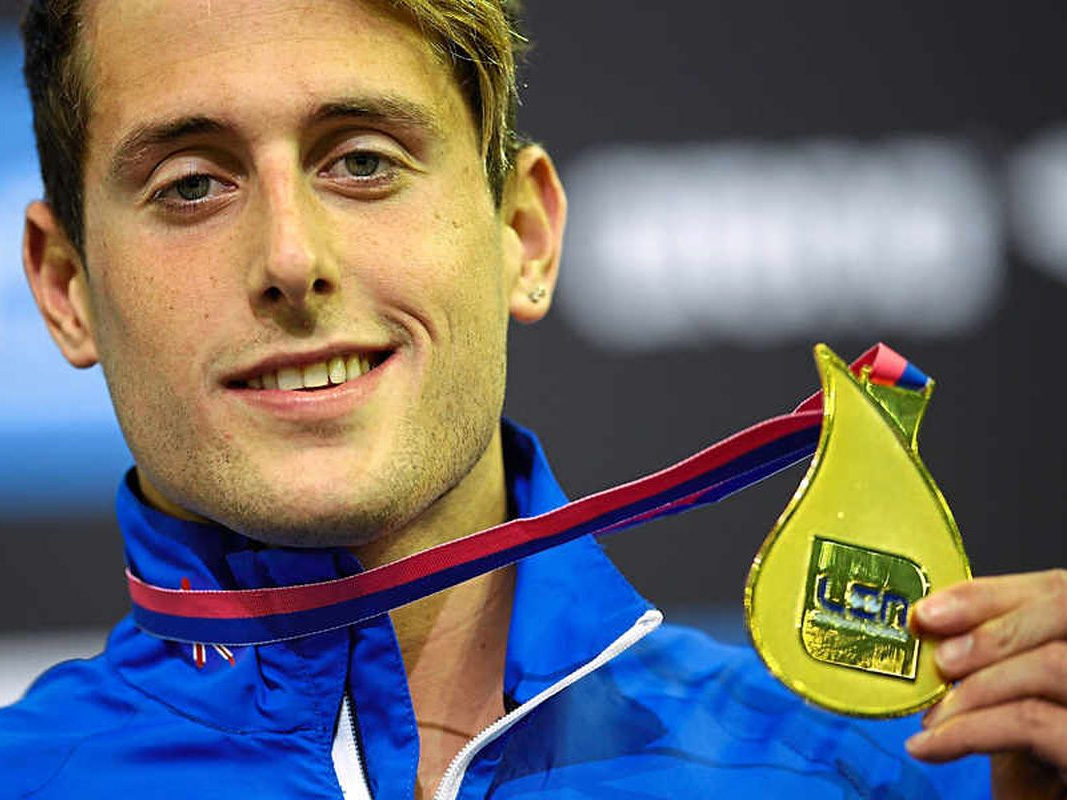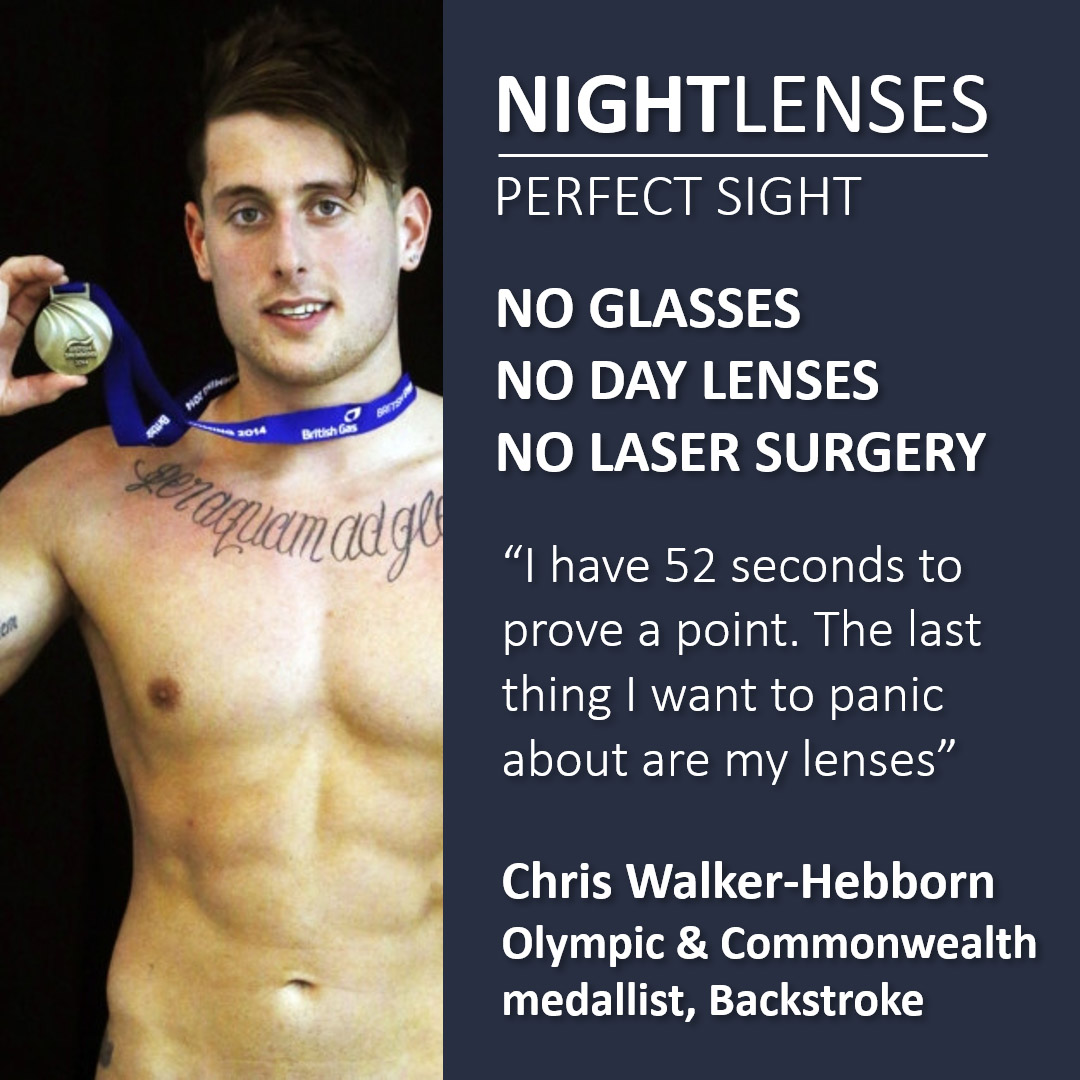Chris Walker-Hebborn

Night lenses changed my life | Chris Walker-Hebborn | Olympic swimmer
Q. Looking forward to chatting with Chris here. Chris snagged the 100m backstroke gold at the 2014 Commonwealth Games and locked in a silver with the Medley team at the 2016 Olympics – that’s a highlight worth talking about. Watching that Olympic race, which also marked Phelps’ final hurrah, added another layer of drama. Can you share your thoughts about that race, Chris? With a solid team, what was the vibe like?
A. It was quite something, to say the least. Last race of the meet and the stadium was rocking. You knew it was going to be a big showdown, and it was pure chaos. The atmosphere was electric. It turned out to be a fierce race, and they edged us into second place.
Q. You’ve had some standout moments in your career, including that Commonwealth gold. What was that victory like?
A. People always ask about my favorite memory, and it’s got to be 2014. My first gold medal. I had a strong junior career, but the senior level was a different ball game. Winning a couple of golds and setting a record that still stands, I take immense pride in that. And then to repeat the feat at the Europeans with a few more golds, that was probably the pinnacle of my career. Even though an Olympic medal is a big deal, silver doesn’t quite match up!
Q. What’s cool is I revisited that race before this interview. The commentator wasn’t expecting you to surge, but then you did…
A. Those commentators, whether it was Helen Skelton, Steve Parrish, or Sharon Davis, they follow your journey. You talk to them year after year, through thick and thin. I remember chatting with Sharon Davis afterwards, and she said ‘finally!’ I told her, “You’ve got no idea!” The journey only got better from there. To hit peak form in the twilight of my career speaks to never giving up.
Q. When did you dive into swimming?
A. Early on, as my parents wanted me to learn swimming as a life skill. I was into all sorts of sports, but swimming just clicked for me. Swimming takes up a lot of time, and there’s not much racing. When I was 15, I joined the national scene. They’d pick six guys each year for the Offshore Programme, a two-year scholarship in Australia. I wasn’t even close to the top six at the time, but many lads didn’t want to leave home that young. My mom pushed me – “Don’t miss this chance!” So, I packed off to Australia, and that’s when I took off, becoming European and World Junior Champ. It was a surprise, to say the least.
Q. We’re here to talk about night lenses, which brings us to your eyesight. Around 15 or 16, was your eyesight becoming an issue and affecting you?
A. I always knew my eyesight wasn’t perfect, but I was stubborn about wearing glasses. I grew used to the blur. Squinting was my go-to move. When I started learning to drive, my eyesight couldn’t cut it. Couldn’t read road signs or license plates. I realized I needed glasses, but I disliked them. Can’t swim in glasses, obviously. So, I ended up wearing night lenses due to that domino effect.
Q. Did you first try day contact lenses? What about prescription goggles?
A. Prescription goggles were around, but they weren’t appealing. They weren’t cool, and I wasn’t about to race in them – especially when you’re on TV. Glasses were out too, so day lenses were my only option. For any swimmer who’s worn lenses, they know lenses fold, fall out, or get stuck under your eyelid. Not ideal. Training with them was a non-starter. I’d pop them in right before a race to catch the scoreboard and flags, but it wasn’t a great solution. Lost one a few times, or raced with just one lens in – not helpful.
Q. Many top athletes say nailing it on the day is all about getting everything right, fine-tuning every detail for peak performance. Everything’s got to be spot on, competing against the world’s best. Did lens problems ever mess up your race prep or performance?
A. Sure, I could always ditch the lenses if they acted up. But for my best race, I need a stress-free vibe. I have 52/53 seconds to make a statement, and the last thing I want to stress about is my lenses. A couple of times, I recall, not on the Olympic stage thankfully. One instance stands out – I was in France, outdoors, which is trickier. Couldn’t get my lenses in, stressed and fumbling. I was in the 100m backstroke final against Camille Lacourt, the world champ. It was his turf, and I aimed to hold my own. Ended up racing without the lenses – not ideal for the starting blocks. It wasn’t my best race. I refused to look at the boards, knowing I’d come in second. I didn’t want squinting pics of me circulating!


A. Luckily for a backstroker like me, we don’t experience much velocity coming in from the blocks, so my goggles don’t slide down my face or neck. However, there was one instance during the semi-finals of the European championships. After a tumble turn, I blinked naturally and caught one of my lenses. It folded within my eye, and I couldn’t unfold it. Thankfully, I advanced to the finals and had a strong performance at the European championships. These are the little nuisances that come with day lenses and swimming, which are quite bothersome.
Q. That leads us to night lenses, naturally. You put them in at night, take them out in the morning, and you have perfect vision without needing glasses or contact lenses – ideal for swimming, of course. In hindsight, if you could go back to when you were 15 or 16, would choosing night lenses have been a no-brainer? Do you think they would have impacted your career?
A. It would have certainly made life simpler. Night lenses are a game-changer. Wearing glasses is a hassle. You’re stuck with something all the time just to see decently. I would have adopted them sooner, without a doubt. I can’t imagine my life without them now. I’ve been without glasses for five or six years, and I don’t plan on going back. Night lenses are fantastic gear.
Q. You’re an active dad now, with an active life, do you find that they have a benefit outside of your sport?
A. Absolutely. It’s great not needing glasses to drive legally. Glasses have their place, but they’re not for everyone. When I’m at the park, knowing I can spot my daughter among the crowd is a relief. It’s the little things you don’t realize until you make the switch. I’ve grown accustomed to having perfect vision every day. It’s become essential, something I couldn’t do without now. You get used to it.
Q. Have you ever considered laser surgery?
A. Yes, toward the latter part of my career, as training tapered off and I was eyeing retirement on my terms. I had the luxury to explore it. I suffer from a lazy eye, which ruled out laser surgery. That’s when night lenses were recommended, and I can’t imagine life without them now.
Q. Why would you recommend night lenses to young, talented, nearsighted swimmers out there?
A. Starting young is definitely worth it. I don’t regret it, as I didn’t have the option back then. They could change your career trajectory by eliminating worries. It’s a bit vain, but photos on the podium, checking your time without needing your coach’s input. How many times did I have to ask my coach my time because I couldn’t see it myself? Exiting the pool for media interviews not knowing whether it’s a PB, season’s best, or world record. It’s the little things that can smooth your journey. The most significant thing is that my eyes haven’t deteriorated in six years. My prescription has remained the same. Getting new lenses each year is a breeze.
Q. You mentioned ‘game changer’ earlier. We hear that from many athletes discussing night lenses, mainly because it’s now a real alternative to laser eye surgery. Laser surgery isn’t a permanent solution, and it carries risks like floaters that could impact performance. For elite athletes, it also means time away from training and competing. Do you think night lenses could be game changers for elite, nearsighted athletes?
A. Absolutely. They sidestep taking time off from the water, while laser eye surgery is pretty invasive. I haven’t heard of anyone who hasn’t struggled for at least a week afterward. For many of us, especially in swimming, we can’t afford to skip pool time. Missing three sessions can render us unfit or out of touch with the water. I know it sounds intense, but at that level, it’s that delicate. Having something that’s practical, doable, and all of that, I don’t see how it’s not a game changer. I’m not knocking laser eye surgery, but my best mate’s dad is on his third round, and I’m not up for all that.
Q. They often say night lenses are optometry’s answer to laser eye surgery. Thanks so much for your time and this insightful interview. Your career has been a joy to watch. It was fantastic to revisit your two epic races ahead of this conversation.
A. Thank you.
After wrapping up the interview, Chris and I continued to chat. I asked him about the race with the French champion – how confidence, or projecting confidence, is crucial. Athletes like Adam Peaty, Phelps, and Bolt often talk about having a certainty that they’ve trained harder and are better than their rivals, exuding that confidence. Chris had a fascinating perspective:
Chris: To me, poor eyesight was like Superman’s kryptonite. With glasses on, he was Clark Kent – average, weak, beatable. Take off the glasses, and he’s Superman. When I was younger, I had a certain arrogance about my ability, a confidence essential for top-tier performance. I didn’t want to walk in with swagger, only to struggle with contact lenses. A clear vulnerability. This applies to all elite athletes. To win, you must believe you’re the best and convey that to your competitors. Night lenses meant I never showed weakness. They turned me into Superman! 😊
WATCH | Chris Walker-Hebborn
Watch this interview in full, filmed on Zoom.
